1. “Every Breath You Take” – The Police
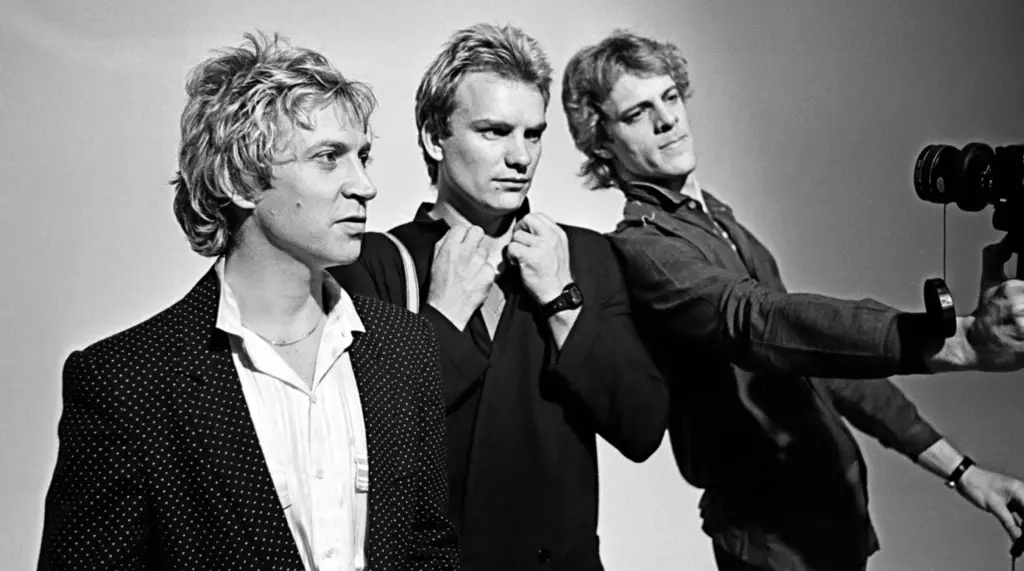
This catchy tune from The Police was widely interpreted as a romantic love song, but its lyrics tell a much darker story. Written by Sting, “Every Breath You Take” explores themes of obsession and surveillance, making it a haunting reflection on possessiveness. While listeners may have hummed along to its soothing melody, few realized it was actually about the uncomfortable side of infatuation.
With its line “I’ll be watching you,” the song subtly addresses the notion of control and unhealthy attachment. It’s a commentary on the invasion of privacy that can occur within relationships, making it relevant to today’s conversations about surveillance and personal boundaries.
2. “Another Brick in the Wall” – Pink Floyd
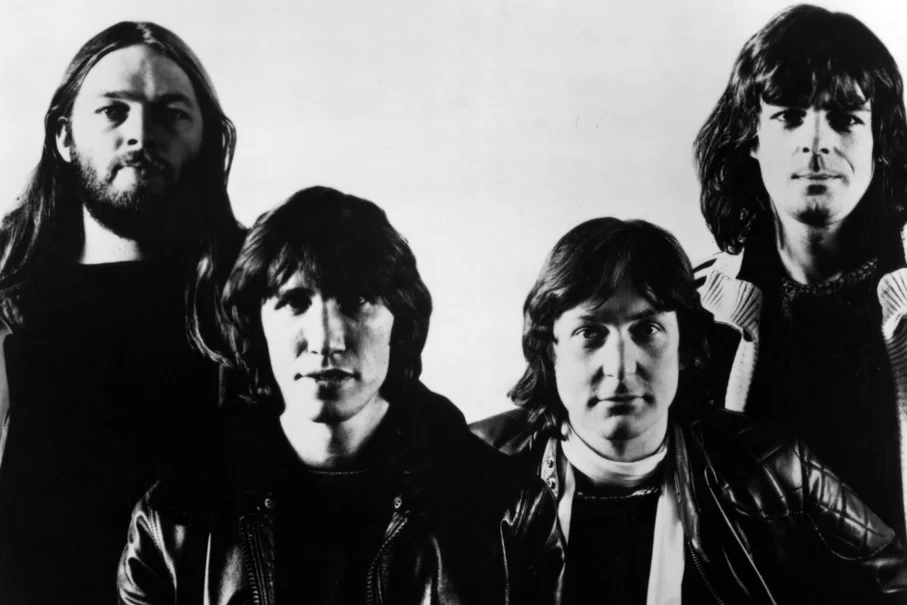
Pink Floyd’s iconic track “Another Brick in the Wall” was one of the most memorable protests against rigid, authoritarian schooling. While it may have seemed like a rebellion against the education system, the song offers a deeper critique of the dehumanizing effects of institutional control. Its famous line “We don’t need no education” wasn’t just about rejecting the classroom—it spoke to the broader issue of personal freedom.
The song served as a social commentary on how society shapes individuals through education, often stifling creativity and self-expression in the process. In a world where conformity is often emphasized, this song’s message still resonates as an anthem for challenging societal norms.
3. “Take On Me” – A-ha
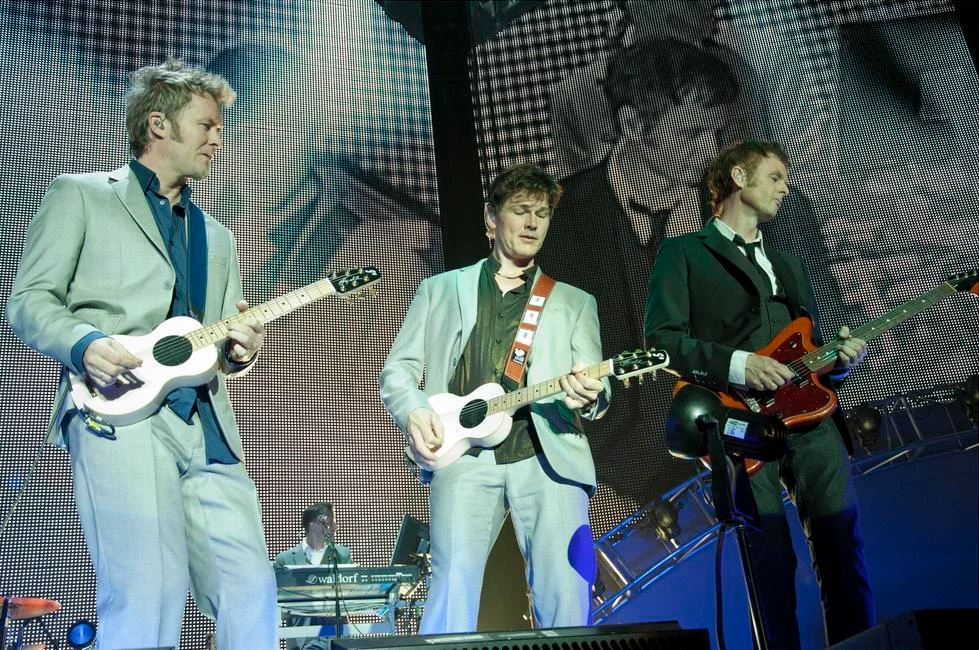
While “Take On Me” is mostly remembered for its upbeat melody and groundbreaking music video, it subtly touches on themes of escapism and longing for freedom. The song’s lyrics tell the story of a relationship that seems doomed from the start, but there’s an underlying tension about wanting to break free from everyday life and take a leap of faith.
In the context of the 1980s, this was a reflection of societal pressure, particularly on young people trying to navigate their desires for independence while dealing with the pressures of family, work, and the system. “Take On Me” was about yearning for something more, and it tapped into a collective sense of wanting to break away from the ordinary.
4. “99 Luftballons” – Nena

The German hit “99 Luftballons” is known for its upbeat tempo, but the underlying message is far more somber. Released during the height of the Cold War, the song tells the story of 99 red balloons being mistaken for enemy aircraft, leading to a chain reaction that results in nuclear war. This was a powerful piece of social commentary on the tensions between superpowers and the terrifying reality of the arms race.
The song’s playful tune belies its serious message about the absurdity of war and the fragile state of global peace. In today’s context, it serves as a reminder of how easily misunderstandings and military tensions can escalate into catastrophic consequences.
5. “Born in the U.S.A.” – Bruce Springsteen
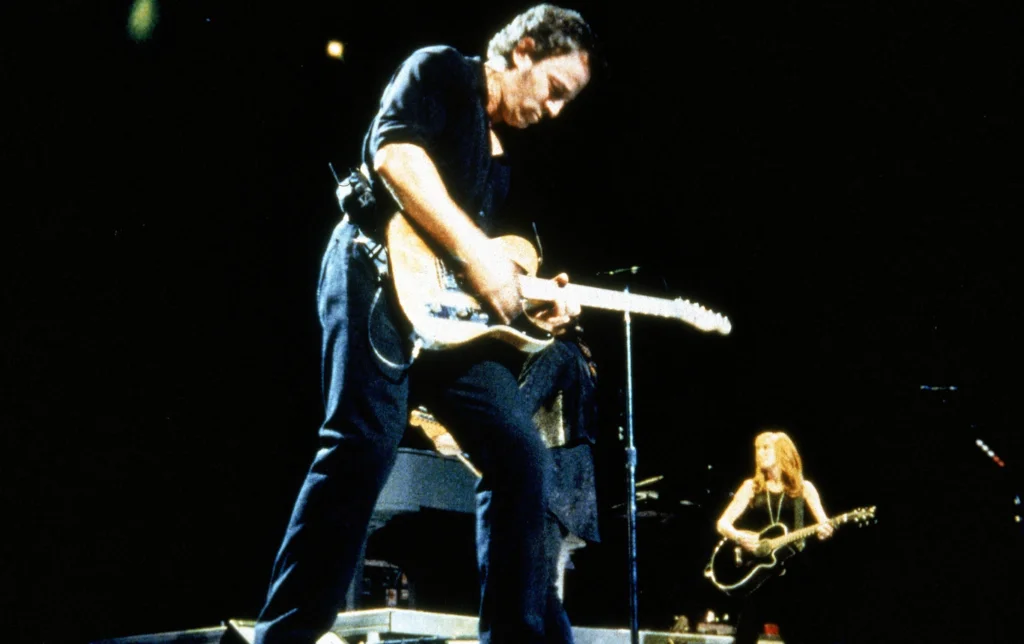
On the surface, Bruce Springsteen’s “Born in the U.S.A.” seems like a patriotic anthem, but its lyrics reflect a far more cynical view of American life. The song tells the story of a Vietnam War veteran returning home only to find himself abandoned by the country he fought for. It critiques the government’s treatment of veterans and the societal neglect faced by many returning soldiers.
Far from a celebration of American greatness, “Born in the U.S.A.” is a scathing commentary on the gap between the idealized vision of America and the harsh reality faced by its citizens. The song’s ambiguous tone made it a powerful critique that was often misunderstood as a patriotic anthem when, in fact, it was a critique of American policy and treatment of its own people.
6. “Fight the Power” – Public Enemy
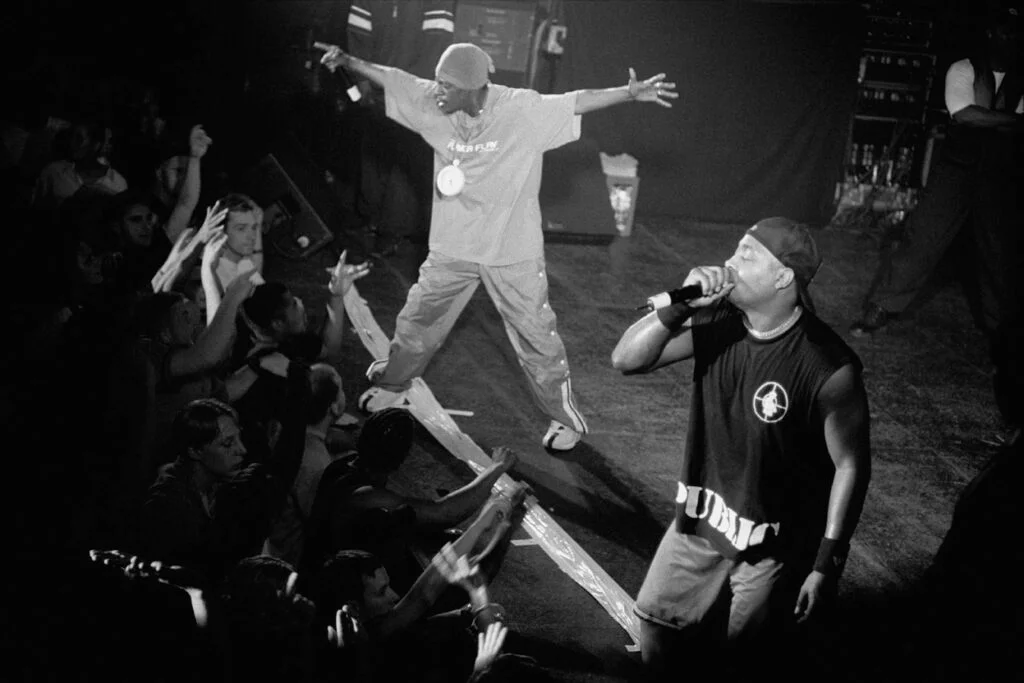
Released in 1989, Public Enemy’s “Fight the Power” quickly became a rallying cry for a generation of African Americans protesting systemic racism and injustice. With its hard-hitting lyrics and bold statement against societal norms, the song was a direct challenge to the status quo. Public Enemy used their music to address racial inequality, a topic that, unfortunately, remains relevant today.
“Fight the Power” became more than just a song—it was an anthem for the civil rights movement of the late 20th century, pushing listeners to confront their own biases and fight against oppression. It called for a radical change in how society viewed and treated marginalized communities.
7. “Bizarre Love Triangle” – New Order

While many remember “Bizarre Love Triangle” as a synth-pop classic, its lyrics hint at complex emotional struggles and the confusion of love and relationships. The song’s theme revolves around the difficulties of navigating desire, commitment, and emotional conflict, particularly in a world where expectations are unclear. This makes it not just a love song, but a commentary on the complexities of modern relationships.
The track highlights how societal pressures shape personal relationships, often creating tensions between what we want and what we feel obligated to do. It’s a reflection on the confusion of emotional attachment, set against the backdrop of a society where personal freedom and choices are constantly at odds with traditional norms.
8. “I Wanna Dance with Somebody” – Whitney Houston
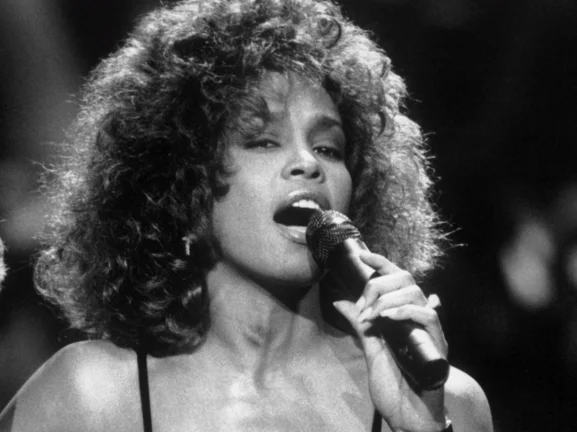
Whitney Houston’s “I Wanna Dance with Somebody” is often seen as a pure pop anthem of joy and liberation, but it also touches on the need for connection and intimacy in a world that can sometimes feel isolating. The song’s yearning for companionship speaks to a universal desire to break free from loneliness and experience joy with others, something that was especially poignant in the era of consumerism and growing disconnection.
At its core, the song is about the human need for connection and belonging, especially in an increasingly individualistic society. As much as it was a dance hit, it also served as a commentary on the loneliness that often lurks beneath the surface of modern life, even for those in the spotlight.
9. “Smalltown Boy” – Bronski Beat
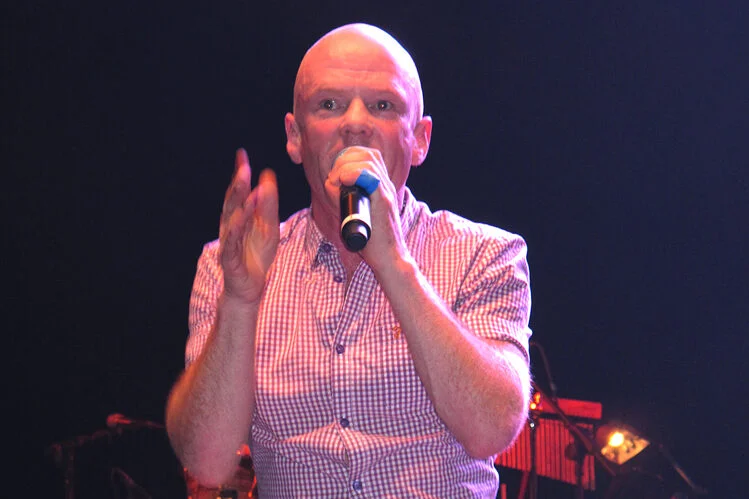
“Smalltown Boy” by Bronski Beat broke new ground by addressing the experience of being a young gay man in a small town. The song’s poignant lyrics highlight the alienation and emotional turmoil that often accompanies coming out in environments that are not accepting. In the conservative climate of the 1980s, this song was a radical expression of the struggle for LGBTQ+ acceptance.
With its danceable beat, “Smalltown Boy” made the harsh realities of discrimination and homophobia accessible to a wider audience. It’s a stark reminder of the social challenges faced by marginalized groups, and its relevance is still felt today as LGBTQ+ rights continue to be an ongoing battle.
10. “Don’t Stop Believin'” – Journey
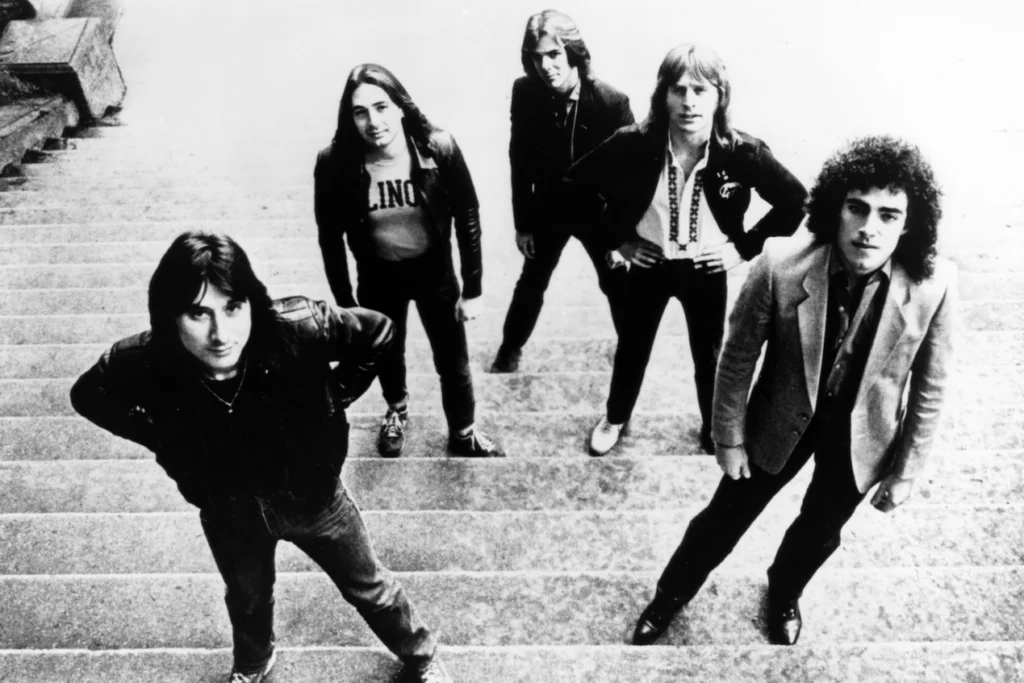
Journey’s “Don’t Stop Believin'” became an anthem of hope, but its deeper meaning lies in its depiction of the struggle for personal fulfillment amidst hardship. The song’s story of a “small-town girl” and a “city boy” trying to find a sense of purpose resonates with the struggles of many people in the 1980s trying to navigate the complexities of economic and social mobility.
While the lyrics might sound optimistic, there’s a sense of desperation in the pursuit of dreams, a social commentary on the lengths people go to in the search for success and belonging. The song captures the yearning for a better life and the realization that it may be harder to attain than one expects.
11. “The Message” – Grandmaster Flash and the Furious Five
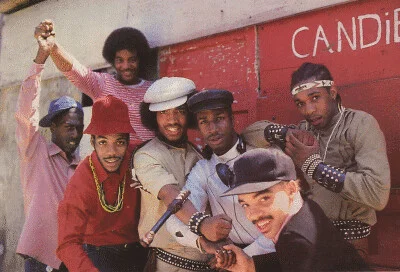
“The Message” by Grandmaster Flash and the Furious Five is one of the most important early examples of hip-hop as social commentary. With its vivid depiction of inner-city life, the song paints a stark picture of poverty, crime, and the struggles faced by those in marginalized communities. Its infamous line “Don’t push me ’cause I’m close to the edge” encapsulates the frustration and hopelessness that many felt in underprivileged urban areas.
At a time when hip-hop was still emerging as a genre, “The Message” broke boundaries by using music to discuss serious issues. It was one of the first songs to bring the realities of inner-city life into the mainstream, making listeners from different backgrounds confront the issues of systemic inequality and social injustice.
12. “Fast Car” – Tracy Chapman
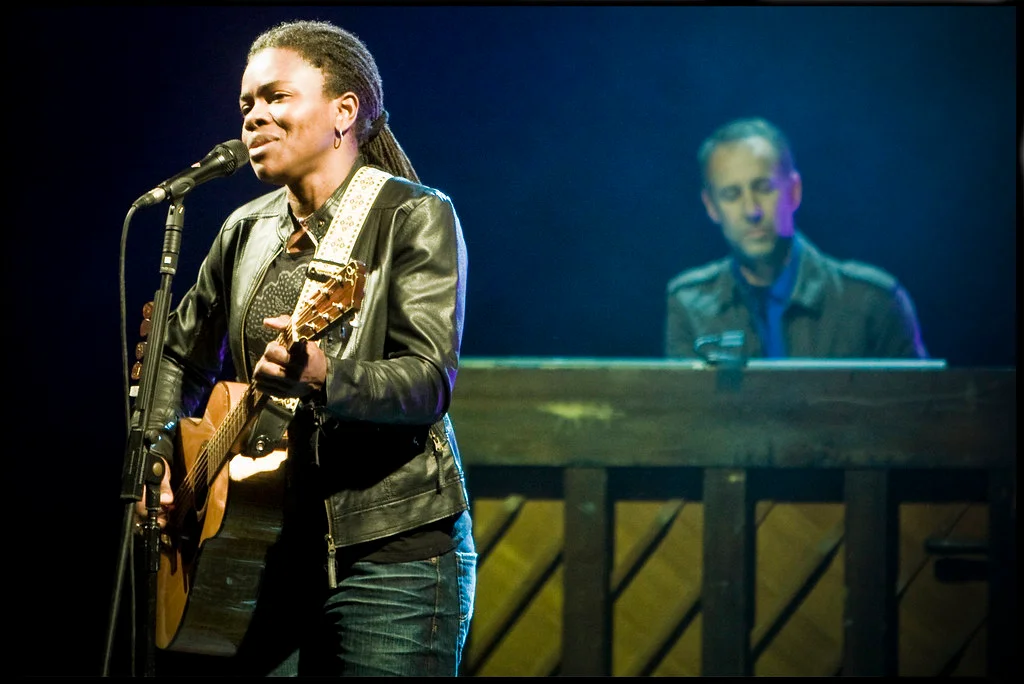
Tracy Chapman’s “Fast Car” is a hauntingly beautiful ballad that explores the dreams of escape and the harsh realities of life. It tells the story of a woman seeking freedom from poverty and a broken family, using a car as a metaphor for the possibility of a better life. In its simplicity, the song touches on deeper issues like class struggle, the desire for a fresh start, and the limitations imposed by socioeconomic status.
The track reflects the emotional toll of living in poverty and the false hope that material success can provide an escape. It’s a social commentary on the cycles of poverty that trap many people and the difficulty of breaking free from them, even with the best intentions.
13. “Money for Nothing” – Dire Straits

“Money for Nothing” by Dire Straits offers a cynical view of fame, success, and the class divide. The song is told from the perspective of a working-class man who envies rock stars for their glamorous lives. What seems like a critique of the entitlement associated with wealth and fame, however, is also a critique of the very idea that hard work always leads to success.
The song’s famous line, “I want my MTV,” reflects the growing influence of television and media in shaping societal values. It’s a commentary on how wealth and status are often portrayed in the media, while the everyday struggles of working people remain unseen.
14. “Tainted Love” – Soft Cell
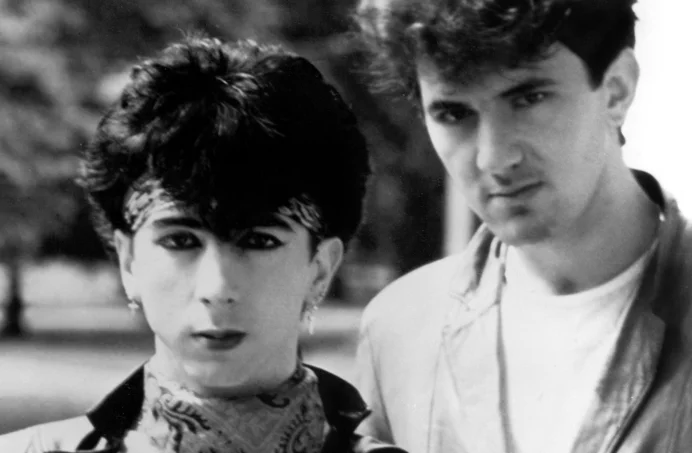
Soft Cell’s “Tainted Love” is often remembered for its synth-heavy beat and haunting lyrics, but at its core, it’s a song about emotional manipulation and toxic relationships. The song’s narrator speaks of a love that has become “tainted,” illustrating how personal relationships can become corrupted by control and dependency.
At a time when discussions about emotional abuse were still in their infancy, “Tainted Love” captured the complexity of unhealthy relationships. Its portrayal of someone trying to break free from a toxic situation resonated with listeners who had experienced similar struggles in their own lives.
15. “Sweet Dreams (Are Made of This)” – Eurythmics
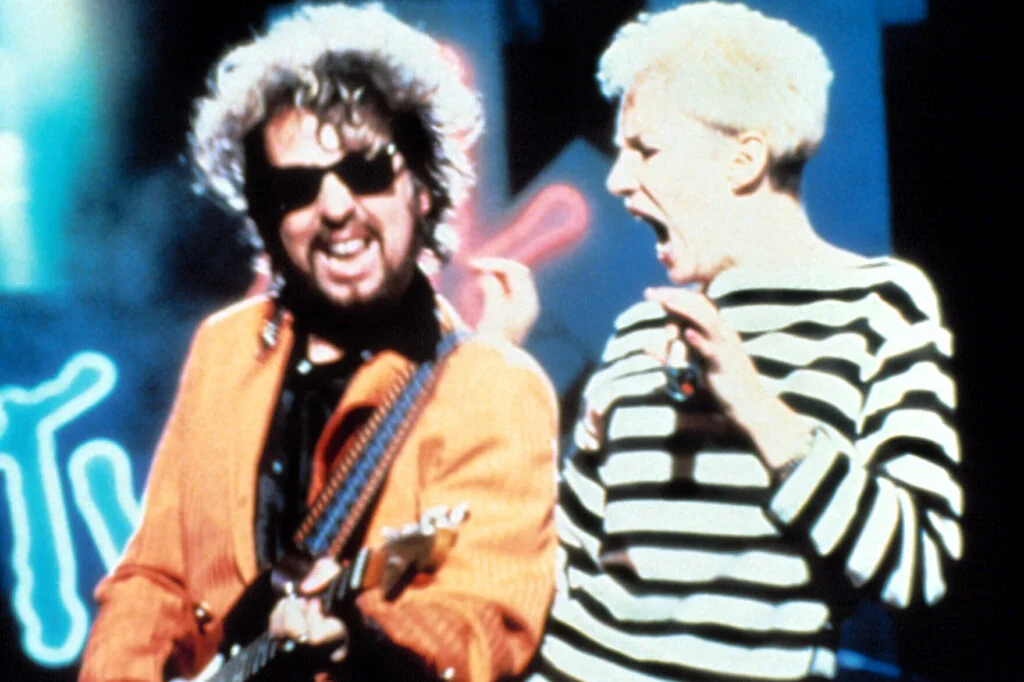
Eurythmics’ “Sweet Dreams” is often seen as a simple pop song, but its lyrics reveal a complex commentary on power, control, and the pursuit of dreams. The song addresses the human tendency to chase after idealized notions of happiness and success, while ignoring the darker aspects of those pursuits.
The line “Some of them want to use you, some of them want to be used by you” hints at the manipulative nature of relationships in a capitalist society, where power dynamics are at play. It’s a reminder that even our greatest aspirations come with costs, and the pursuit of dreams can often be tainted by exploitation.
16. “With or Without You” – U2
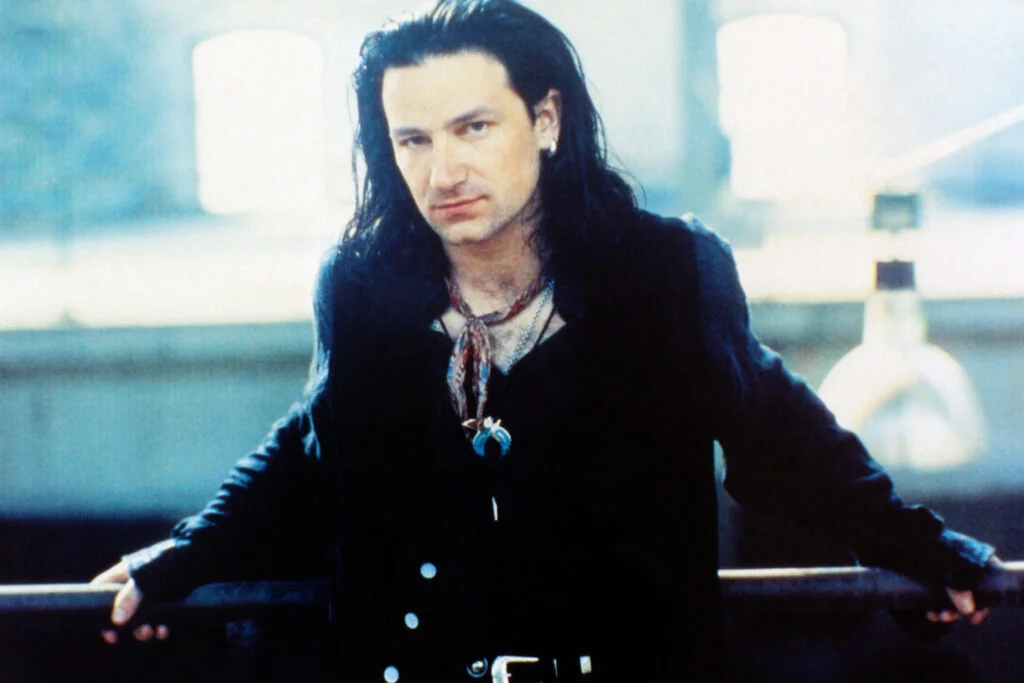
U2’s “With or Without You” is a song about the emotional pull between love and the necessity of letting go. The song’s lyrics reflect the tension between attachment and independence, and it speaks to the emotional complexities of relationships in a way that goes beyond romantic love.
At its core, “With or Without You” is about the struggle between personal desire and the need to break free from something or someone that no longer serves you. This conflict is a powerful social commentary on how we often find ourselves trapped by the very things we long for.


